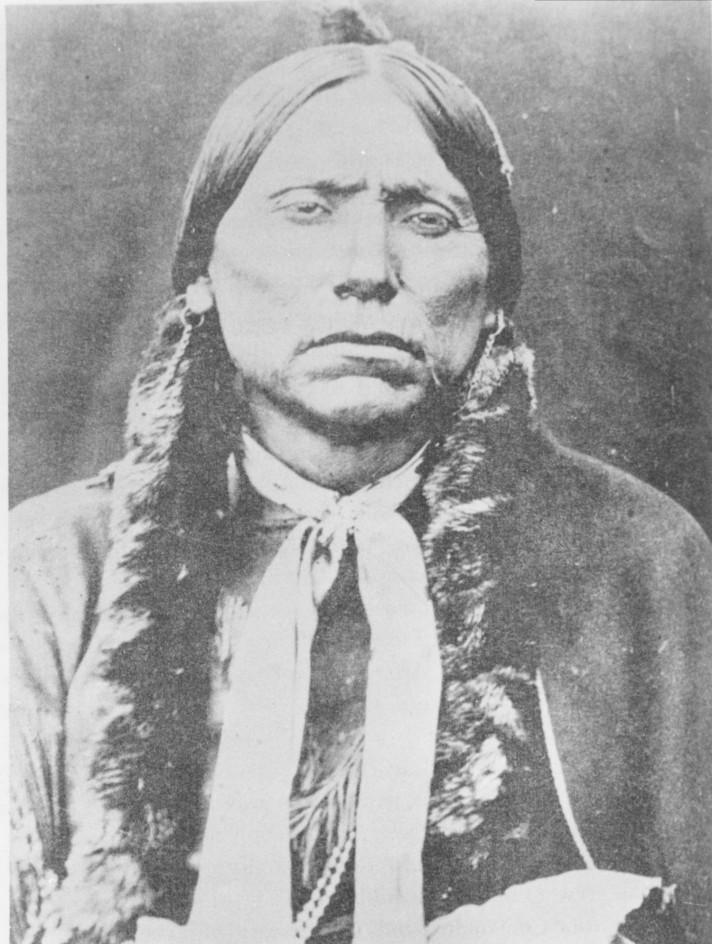War, Not-War, and Peace: 'Empire of the Summer Moon' by S. C. Gwynne

Too often, ‘peace’ is simply the absence of active war. Ours is a country – and culture – forged in a crucible of war and conquest. What defines much of our national character is aggression, both its light and dark sides. The five Pulitzer Prize recognized books selected for this series are:
The Things They Carried by Tim O’Brien, 1991 Fiction finalist
Empire of the Summer Moon by S. C. Gwynne, 2011 General Nonfiction finalist
Maus by Art Spiegelman, 1992 Special Citation winner
Neon Vernacular by Yusef Komunyakaa, 1994 Poetry winner
All the Light We Cannot See by Anthony Doerr, 2015 Fiction winner
These choices reflect not only the requisite scholarship, but a deep commitment to presenting Pulitzer winners detailing both the active elements of war – seen clearly in Neon Vernacular, Maus, and Things – as well as the long-lived legacies of war, in those periods optimistically called ‘peace.’ The fragmented peace/non-war axis is evident in all five of the texts, which span a history beginning with the Indian Wars (Empire), move to WWII (Maus and All the Light) and the Vietnam War (Things and Neon Vernacular), and culminate in contemporary time. Given the parameters of the Pulitzer grant, perspectives are as broad as possible: characters are black, white, mixed race, Indian. Male and female, blind and sighted. German, Jewish, French, American, Comanche. Even genres have been examined to undercut the idea of the Pulitzers as awards for only certain kinds of texts: fiction, non-fiction, history, biography, poetry. The result is a prism through which war and peace are refracted in multiple colors, a vivid palette of war, not-war, and peace.
On September 20, Rex Morrell, Ph.D. will present on Empire of the Summer Moon. Empire, as a historical biography, provides deeply textured background to a series of hellish conflicts: the Indian Wars of the 19th century. Early chapters of the book detail the vastly different Plains Indian and white settler cultures, with particular emphasis on the Comanches of Quanah Parker’s tribe. This deep a cultural schism presages the various Indian Wars themselves, coupled with the betrayal of the US government over decades of interaction.
Although all five of the books selected are male-authored – war throughout history has been seen as a gendered endeavor – women are significant partners in each of the texts: in Empire, Quanah Parker’s mother, Cynthia Ann Parker, is as much a presence as her son. Her picture becomes a kind of leitmotif for what war does to all who are touched by it: their lives are permanently disrupted, even when they ‘adapt.’ As Quanah Parker, legendary as the Principal Chief of the Cheyennes who became an American, did; Parker even sat on the local school board.
In Empire of the Summer Moon we become aware of how many vectors influence the development and subsequent playing out of war. From geography to politics to greed to treachery to cultural distance and difference, all are seen clearly in Gwynne’s book. Least apparent, perhaps, are the tragic consequences, noted primarily – as they are in O’Brien – in the immediate impact on combat victims.
More in this series:
Aug. 30, 6:30 p.m.
The Things They Carried by Tim O’Brien
Presenter: Ken Hada, Ph.D.
Sept. 20, 6:30 p.m.
Empire of the Summer Moon by S. C. Gwynne
Presenter: Rex Morrell, Ph.D.
Oct. 18, 6:30 p.m.
Maus by Art Spiegelman
Presenter: Robert Greenstreet, Ph.D.
Nov. 8, 6:30 p.m.
Neon Vernacular by Yusef Komunyakka
Presenter: Bill Hagen, Ph.D.
Dec. 6, 6:30 p.m.
All the Light We Cannot See by Anthony Doerr
Presenter: Glenn Melancon, Ph.D.
